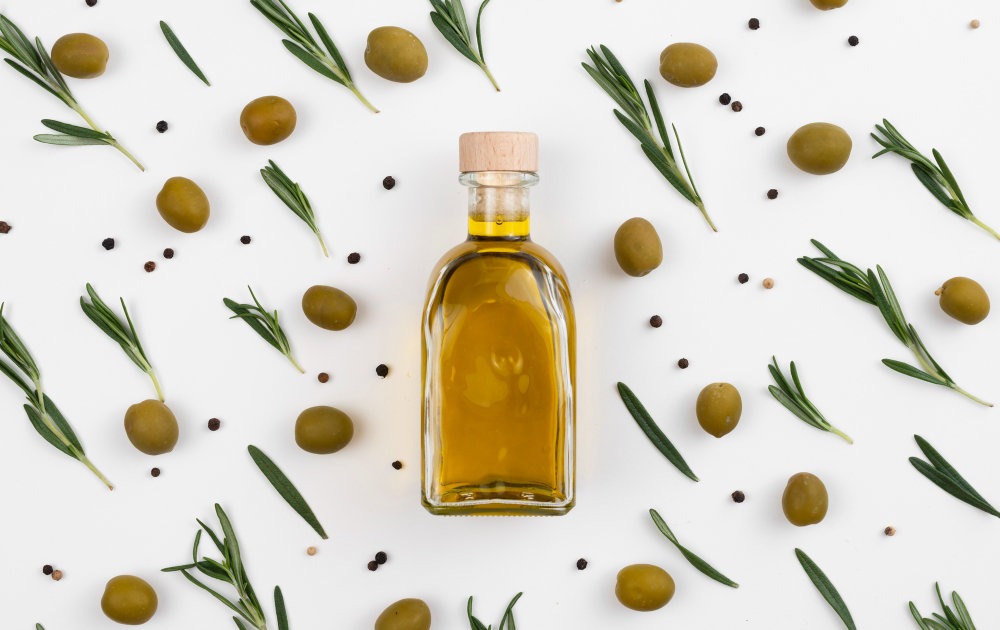Are You Buying Fake Olive Oil?

Most people are aware that preparing food with Extra Virgin Olive Oil (EVOO) has many health benefits, but few know how to properly select EVOO. Even more surprising: grocery store shelves are filled with imposter EVOO!
EVOO Health Benefits
The olive, fruit of the olive tree, is used to make olive oil of any grade (quality). EVOO is the top grade oil because (1) it is purest and (2) it is rich in two key nutrients:
- Antioxidants help protect the cells in the body from harmful chemicals called free radicals.
- Polyphenols are plant compounds, and a type of antioxidant, that also protect the cells and help control inflammation in tissues.
In the body, antioxidants and polyphenols offer protection against chronic disease including heart disease, vascular disease, stroke, and several types of cancer. These compounds also may help reduce the risk of depression, Alzheimer’s Disease, and minimize factors that contribute to metabolic syndrome. Research also shows that people who follow a Mediterranean Diet, (high daily consumption of EVOO), live longer, healthier lives with a much lower incidence of chronic illness.
Is your EVOO an Imposter Oil?
In recent years, news outlets such as 60 Minutes, New York Times, and others have run stories on imposter Extra Virgin Olive Oil. Increased global demand for EVOO has exceeded supply. At the same time, new technology, global trade, and climate change have affected the harvest, production, and distribution chain for the oil. Finally, the rise of the agro-cartel caused the olive oil industry to succumb to fraudulent activity. The result is consumers around the world paying a high price for “extra-virgin” olive oil that has been “cut” with lesser quality or less expensive oils (such as sunflower and canola), or colored with chlorophyll to make it look authentic.
How to Choose Quality EVOO
Unless you know what to look for, it’s likely you’ve been buying an imposter EVOO in the grocery store. The production of EVOO is an art form in European countries, much like cultivating grapes for wine. Many countries have Olive Oil Tastings, much like wine tastings. Depending on the harvest region, environmental conditions, and the process used to produce the oil, EVOO will vary in aroma, flavor, consistency, and slightly vary in its color.
Authentic and quality EVOO is luminescent green in color, has an aroma (when warmed it should smell like olives) and has an olive-like flavor.
In addition to the delicate olive aroma, olive oil may have hints of asparagus or artichoke, or something akin to fresh-cut spring grass, but the “oliveness” should be evident. If your EVOO does not hold these characteristics, the industry pros suggest you return it to the store.
Also, be aware of these factors when selecting EVOO
Price. A $6.00 bottle of EVOO is probably an imposter. Authentic EVOO is not cheap.
No Faith in Label Designation. The European Union once had clear definitions of “virgin” and “extra virgin” — EV meant “first-press.” However, distillation has switched to centrifuge methods so those terms are less accurate to the process.
Buy from a certified EVOO distributor. This is really the only guarantee. You might find a direct-to-consumer distributor or a fine foods purveyor in your community. If you want organic, buying from a certified distributor becomes even more important.
Stick with a brand you trust. When you find a brand that lists the harvest date, location of harvest, and a distributor name, and the quality is evident, stick with that brand. Examples: Iannotta Italian Olive Oil, California Olive Ranch, Colavita, Primal Kitchen, Temecula Olive Oil Company, Pompeian, Sprouts EVOO from Italy, Greece, or Spain. This is a short list and not all inclusive.
Photo Credit: freepik/freepik.com
Resources
“The Olive Oil Scam” Forbes.com. Accessed 13 March 2021: https://www.forbes.com/sites/ceciliarodriguez/2016/02/10/the-olive-oil-scam-if-80-is-fake-why-do-you-keep-buying-it/?sh=2fdfb4a9639d
Moskin, J. “The World of Olive Oil Is Murky. Here’s Help for the Home Cook.” New York Times (2019, online) Accessed 14 March 2021: https://www.nytimes.com/2019/08/30/dining/best-olive-oil.html
CBS.com “60 Minutes Overtime: Don’t Fall Victim to Olive Oil Fraud.” https://www.cbsnews.com/news/60-minutes-overtime-how-to-buy-olive-oil/
Tressera-Rimbau, A et al. “Dietary Polyphenols in the Prevention of Stroke.” Oxidative medicine and cellular longevity vol. 2017 (2017): 7467962. doi:10.1155/2017/7467962 https://www.ncbi.nlm.nih.gov/pmc/articles/PMC5674514/
Martinez-Gonzalez, M. A. et al. (2018). “Mediterranean diet and life expectancy; beyond olive oil, fruits and vegetables.” https://www.ncbi.nlm.nih.gov/pmc/articles/PMC5902736/
Sánchez-Villegas, A., et al. (2011). “Dietary fat intake and the risk of depression: The SUN project.” http://journals.plos.org/plosone/article?id=10.1371/journal.pone.0016268
Santangelo, C., et al. (2018). “Anti-inflammatory activity of extra virgin olive oil polyphenols: Which role in the prevention and treatment of immune-mediated inflammatory diseases?” https://pubmed.ncbi.nlm.nih.gov/29141574/
Olive oil. (2019). https://fdc.nal.usda.gov
Olive oil and olive-pomace oil grades and standards. (n.d.). https://www.ams.usda.gov/grades-standards/olive-oil-and-olive-pomace-oil-grades-and-standards
